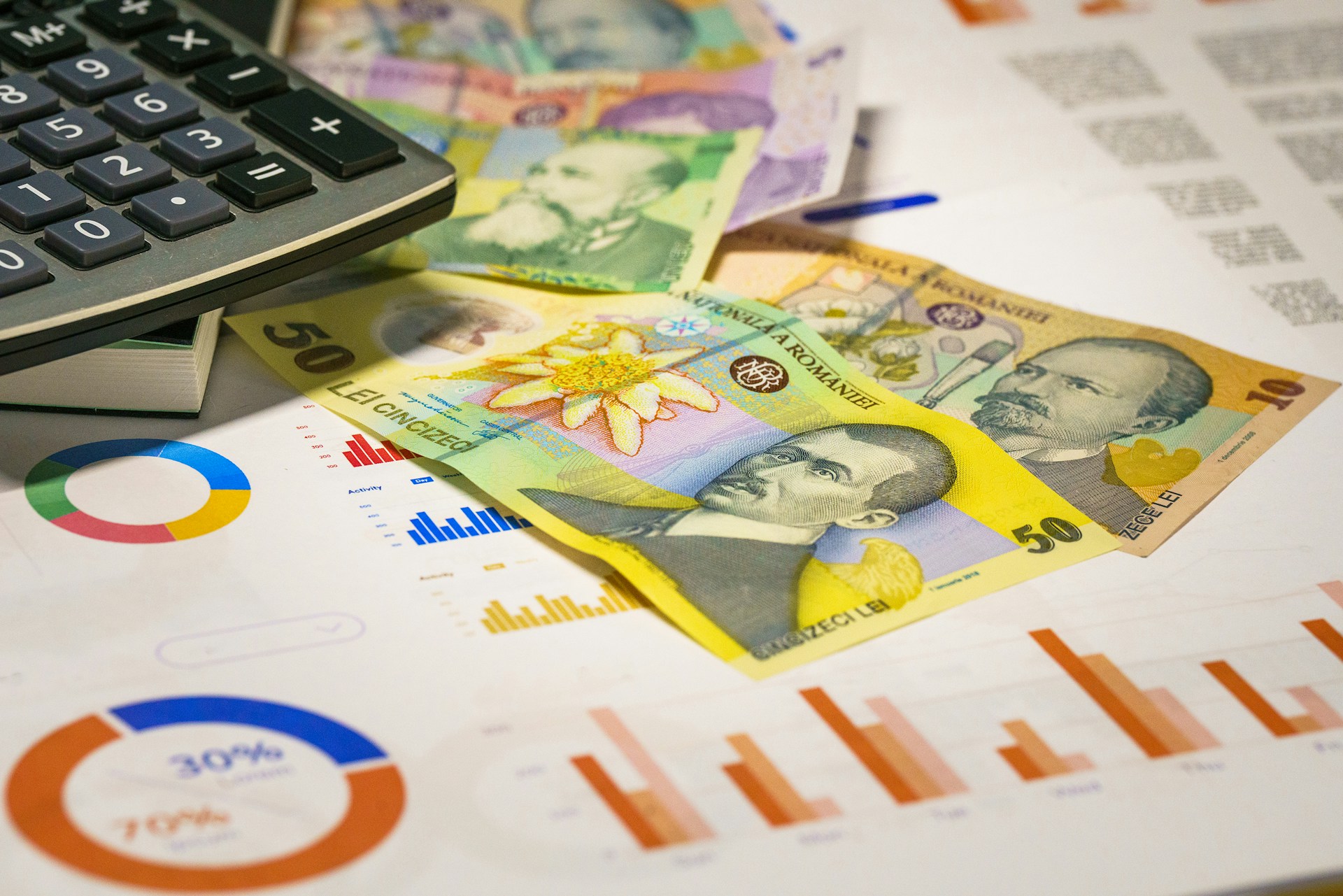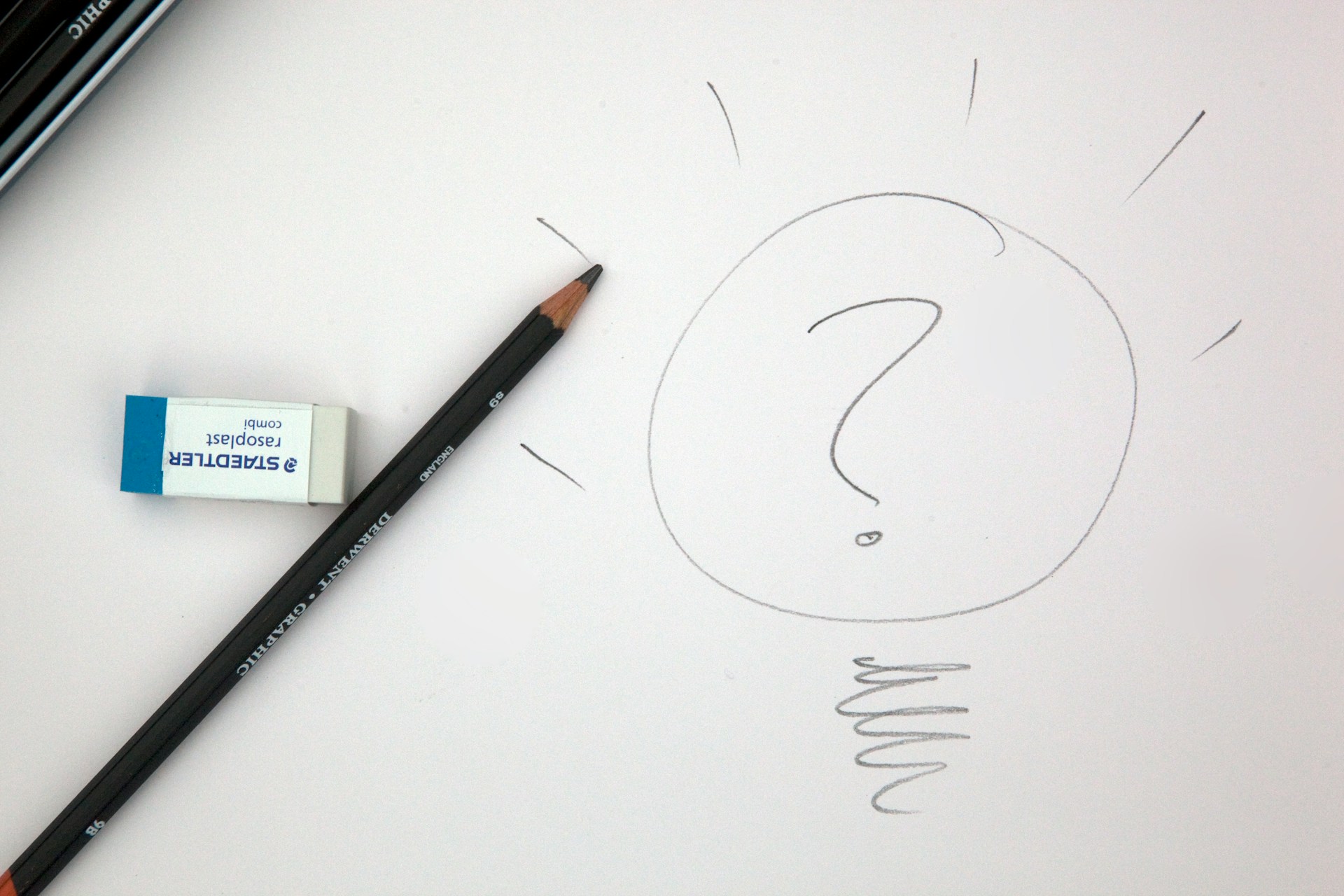The Power of Negotiation - How Steve Jobs Won The Ebooks Tug Of War With Amazon

Ebooks are very common nowadays. Rarely do you see people carrying around hard copies. But there was a time when ebooks were scarcely known. Most publishing companies sold their books through brick-and-mortar stores, and for a long time, this was the norm until one company saw an opportunity to disrupt the publishing industry. That company was Amazon. The name Jeff Bezos doesn’t need any introduction. As the founder and former CEO of Amazon, Bezos carved a niche for himself as the King of e-commerce selling everything from ebooks to a Zhdun Meme Homunculus Loxodontus Plaster Gypsum Sculpture.
If you don’t know what that is, don’t beat yourself up, I didn’t either. I took the liberty to find out so you don’t have to. It is basically a piggy bank but instead of a pig, you get a weird-looking homunculus. Yes, Amazon has it all, but it wasn’t always like this. In fact, there was a time when Amazon was nearly out of business if not for a lawsuit that gave the failing company the much-needed oxygen. This article is not about Amazon or its meteoric rise to glory. It is about a battle that took place roughly 13 years ago between two icons of their time, Amazon founder Jeff Bezos and Apple Founder Steve Jobs. Here is how it all began.
Amazon - King of Ebooks (The Loss Leader Pricing Model)
So it’s around 2012 and Amazon was leading the ebooks race. Being the only company at the time that was selling ebooks, Amazon didn’t have many competitors but all that was about to change when Apple decided it wanted to launch the iPad. Apple needed a good reason to sell iPads. Back then, phones were still regular sized and tablets weren’t so popular. So Apple needed a very good selling point if it was to convince its consumers to buy the iPad. There was no better idea than that of using the iPad to read books. But that also meant Apple had to have books, specifically, ebooks a niche that Amazon had conquered for years. Steve Jobs's position at this point is similar to where most startup founders or business owners find themselves when breaking into a new industry. So what did Steve Jobs do? He positioned himself as a better alternative.
Amazon's founder went to great lengths to lure publishers to his side. To achieve this goal, Bezos’s winning strategy was to sell all ebooks at a flat rate of $9.99. So an ebook that typically sold for say 20 dollars was sold on Amazon for far less. This is an aggressive pricing strategy known as the loss leader strategy. This strategy is commonly used by companies to;
1 - Win over new customers and discourage rivalry
2 - Stimulate the sales of other goods sold by the company
With this strategy, Amazon was able to capture a larger percentage of the market share. Amazon satisfied its partners (publishers) by bearing all the loss, paying the full amount for the ebooks sold despite selling at a loss, and also driving up sales in general since more people now bought ebooks. This was a win-win situation for the publishers who partnered with Amazon. To a casual onlooker, this looks like a foolproof deal. But Steve Jobs was not a casual onlooker, he was one of the most creative minds of his time so it is not surprising he was able to take on Amazon despite their “unfair advantage”. Here is how he did it.
The Amazon deal had two major loopholes,
1 - Many brick-and-mortar stores had to fold up because they were unable to keep up with Amazon’s aggressive pricing. This affected the sales of hard copies which was a second income stream for publishers.
2 - Consumer perception. Since ebooks sold for about 10 bucks less than hard copies, consumers believed that ebooks cost less to produce and didn’t see why they should get a hard copy when they could get two ebooks for the price of one hard copy. I mean, it's basic maths, who won’t jump at the idea?
To the customers, trading their hard cover in favor of ebooks was a no-brainer. But to the publishers, their future prospects weren’t looking so good. This was not because they weren't making sales or profit, but because they foresaw the fact that they would be completely dependent on Amazon. But their hands were tied, it was either they joined Amazon who had already positioned itself as the major player in the industry, or got run over. So when Steve Jobs came with a new deal, most of the publishing companies jumped on board.
Amazon Dethroned (The Agency Model)
Despite selling at a loss, Amazon had the industry in a tight clinch until Steve Jobs came into the picture. Jobs wasn’t going to compete against Amazon playing by its rules. This isn’t so surprising knowing that Steve Jobs has always been an out-of-the-box thinker who was not afraid of being unconventional or controversial. So rather than stoop low and drop prices far lower than what Amazon was offering, he decided to come up with a strategy that underscored the loopholes in Amazon’s deal with the publishers.
Apple’s strategy was called the Agency Model. This is a pricing model where the publishers get to set the retail price for the books and Apple acts as an agency connecting them to the consumers for each sale, Apple takes 30% of the profit and gives the publishers 70%. You might be asking yourself why the publishers would agree to such a ridiculous bargain. There is one reason why they did, it gave them the power to set prices as they wanted. So although Apple was taking 30%, the publishers could easily raise the prices of the ebooks if they wanted to make more profit. Of course, that means Apple gets to take home more profits as well.
However, raising prices unnecessarily could hurt the business and drive away the customers. To avoid that, Apple introduced its first caveat, Price caps. This is the practice of setting an upper price limit that can be charged for a product. The price caps for the ebooks depended on the price of the hard copy. For example, if the hard copy sold for 30 dollars, then the price of the ebook could be capped at 15 dollars. By doing this, Apple ensured that the publishers didn’t set ridiculous prices and that there was a fair difference in price between the hard copy books and the ebook version. The second caveat Apple placed was known as the Most Favored Nation Clause. This was a neat trick engineered to keep Apple ahead of the pricing curve. Here is how the MFN clause works, say a publishing house was to give one of its vendors a discounted price rate for its books, then according to the MFN clause, it has to also give Apple a discounted rate.
For example, If a book is sold for 30 dollars and the publishing house gives a discount of 10% to a vendor. This means the vendor can sell the book for 27 dollars giving it an edge over other vendors that would still be selling the same book for 30 dollars. Well, Steve Jobs saw this one coming and made sure Apple was not left out of any discount sale. In summary, Apple’s Agency pricing model gave publishers a short leash where they could still exercise some control over the retail pricing of their books. This means they get to control the public’s perception that ebooks are better than hard copies and by doing so they could still sell hard copies along with ebooks. So despite the dip in ebooks sales, the profit margin was high enough to encourage several publishers to ditch Amazon in favor of Apple. The story above hides one fact, how did Steve Jobs manage to sell his strategy? That is where his extraordinary ability to negotiate comes in.
Steve Jobs and the Act of Negotiating
With Amazon, publishers were not losing money because Amazon took on all the losses. But then, they had little or no control over the retail prices of the book. This alone was not enough for them to jump ship and partner with Apple which was taking a huge chunk of the profits to be made. But one company refused to join Apple, that company was HarperCollins. HarperCollins was a major publishing house under the parent company News Corp. With five days left before the launch of the iPad, HarperCollins had still not agreed to Apple’s deal and Steve Jobs wasn’t relenting either. But after the two exchanged emails, Steve Jobs was finally able to convince News Corp to sign the deal. You can read the emails here, but I will break down some lessons I gleaned from that communication.
Know the industry
Steve Jobs had signed almost all major publishers except one, but he still wasn’t satisfied until he got that one. Why? This is what I think, Jobs was sending a message and the message was simple. It was either Apple or nothing. He knew that getting the big players on his side meant he didn’t have to convince the smaller publishing companies to join Apple. It was that simple. He knew the industry enough to know what they wanted and despite giving them a half-baked deal, he still managed to wrap it up in a way that the publishers could hardly resist.
Know the weak points of the competition
Here is an excerpt from one of the emails Steve Jobs sent, “The current business model of companies like Amazon distributing ebooks below cost or without making a reasonable profit isn’t sustainable for long. As ebooks become a larger business, distributors will need to make at least a small profit, and you will want this too so that they invest in the future of the business with infrastructure, marketing, etc.”
Jobs capitalized on the flaw in the marketing strategy that Amazon had been using saying it was not “sustainable”. You can see how he made a perfect argument by implying that if Amazon wasn’t making any profits, then it wouldn’t be able to invest in the infrastructure necessary to scale the business. That was spot on. He then continues by highlighting all the ways Apple will offer better services by providing better infrastructures with which it could scale up the business.
Be firm in your decision
Steve Jobs wasn’t flinching and he clearly wasn’t willing to bend over for HarperCollins despite the fact that they were one of the biggest publishing companies at the time. Perhaps this is because Jobs was stubborn by nature. It could also be because he understood that if he gave HarperCollins a different deal, then all the other publishing companies would instantly realize that they could have a better offer if they stood their ground. This thinking would definitely have caused them to revolt and Jobs’s carefully planned industry takeover would have failed before it even started.
Build a compelling argument
It is a good idea to have as much knowledge as possible when going into a negotiation, but knowledge alone is not enough. You also need to know how to apply it in an argument. The word argument may have been misconstrued over the years, but in business, a compelling argument is a nifty arsenal to have on your side. This is what makes you persuasive and forces the other party to consider your point of view. But argument alone is not sufficient either, you need one more ingredient to add to the mix and that is proof.
Show Proofs
Proofs adds to the credibility of your argument. Proof can be physical like an asset and it can also come in the form of statistics or data. Either way, it is an irrefutable way to win a negotiation. Steve Jobs knew this and that was why he said,
"Analysts estimate that Amazon has sold more than one million Kindles in 18+ months (Amazon has never said). We will sell more of our new devices than all of the Kindles ever sold during the first few weeks they are on sale. If you stick with just Amazon, Sony, etc., you will likely be sitting on the sidelines of the mainstream ebook revolution. Customers will demand an end-to-end solution, meaning an online bookstore that carries the books, handles the transactions with their credit cards, and delivers the books seamlessly to their device. So far, there are only two companies who have demonstrated online stores with significant transaction volume–Apple and Amazon. Apple’s iTunes Store and App Store have over 120 million customers with credit cards on file and have downloaded over 12 billion products. This is the type of online assets that will be required to scale the ebook business into something that matters to the publishers."
Conclusion
Steve Jobs was many things. A visionary, a revolutionary, a leader, and a compelling negotiator. No wonder he was able to succeed wherever he found himself, whether in the movie, or tech industry. This article covers one of the remarkable periods in his career. Like many instances when he has brought about a revolution, there is always a lesson that can be learned. The lesson here is the power of negotiation and how to become better at it.
You may also like: Apple's Take On Innovation and Marketing - Here Are 4 Lessons For Startups
FAQs: The Power of Negotiation - How Steve Jobs Won The Ebooks Tug Of War With Amazon
Amazon's "Loss Leader Pricing Model" involved selling ebooks at a flat rate of $9.99, often at a loss, to attract customers and dominate the market. In contrast, Apple's "Agency Model" allowed publishers to set their own retail prices while Apple acted as an agency, taking a 30% cut. This gave publishers more control over pricing, helping them maintain a balance between hard copy and ebook sales.
Publishers switched because Apple's model offered them control over ebook pricing, which they lacked with Amazon. This control helped publishers protect the perceived value of hard copy books and prevented them from becoming overly dependent on Amazon. Apple's approach also assured publishers a sustainable long-term partnership compared to Amazon's unsustainable pricing strategy.
The MFN clause required publishers to provide Apple with the same discounted rates they gave to any other vendor. This ensured Apple stayed competitive on pricing, making it impossible for other platforms like Amazon to undercut Apple's ebook prices.
Steve Jobs emphasized Amazon's unsustainable pricing, argued for Apple's long-term viability due to its integrated ecosystem, and provided compelling statistics about Apple's customer base and transaction volume. He used persuasion, industry insights, and data to build a strong case for Apple's model.
Negotiation was central to Jobs' success. He identified the weaknesses in Amazon's model, tailored Apple's offer to address publishers' concerns, and maintained a firm stance when negotiating terms. By presenting a win-win scenario and leveraging data as proof, Jobs effectively convinced publishers to join Apple.
Jobs understood that securing deals with big industry players would create a ripple effect. Once major publishers committed to Apple, smaller ones would follow. This strategy positioned Apple as a key player in the ebook market almost instantly, giving it an edge over Amazon.
Apple's price caps ensured ebooks were priced fairly relative to their hard copy counterparts. This preserved the perceived value of hard copies, encouraged balanced sales of both formats, and prevented publishers from setting exorbitant prices, which ultimately kept consumers satisfied.
Amazon's advantage was its aggressive pricing strategy, selling ebooks at a flat $9.99 despite losing money. This drew customers away from hard copies and created a dominant market position. Additionally, Amazon's logistics and established Kindle ecosystem helped it become the leading ebook distributor.
Steve Jobs' negotiation style demonstrates the importance of understanding industry dynamics, crafting compelling arguments, staying firm in decisions, and using data and proof to back proposals. His ability to address competitors' weaknesses while highlighting his company's strengths made him a master negotiator.
The clash brought increased competition and innovation to the ebook market, leading to more diverse pricing models and choices for consumers. It also forced publishers to evaluate partnerships based on long-term sustainability, resulting in more balanced power dynamics between distributors and publishers. Ultimately, it set a precedent for how tech companies approach digital content distribution.

square.jpg)










